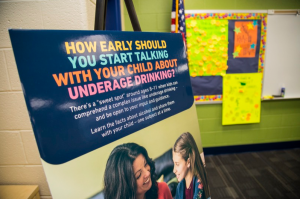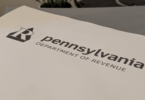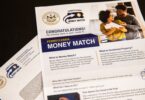Provided by the Pennsylvania Liquor Control Board:
The Pennsylvania Liquor Control Board (PLCB) this week unveiled a new public awareness campaign designed to spark conversations about alcohol use between parents and their elementary to middle-school-aged children.
The Know When. Know How. campaign is a statewide, research-based education and prevention effort targeted to Pennsylvania parents of children ages 8 through 12. The objective of the campaign is to prevent underage drinking by arming parents with the information, tools, and confidence they need to begin having meaningful and effective conversations about alcohol with their kids early and often, before trial or use of alcohol begins.
The campaign is based on PLCB-commissioned research including a statewide survey of more than 500 Pennsylvania parents with children under age 21, along with eight focus groups with parents of children between the ages of 5 and 15. Ninety-four percent of parents surveyed believed it is their responsibility to talk to their kids about alcohol. However, most parents are not familiar with the facts about underage drinking, the long-term effects alcohol can have on kids, the penalties for underage drinking, or when children start drinking.
“The research was incredibly helpful in helping us understand the thoughts and beliefs of Pennsylvania parents surrounding the issue of alcohol,” said Board Member Mike Negra, who participated in the campaign kickoff event. “Parents inherently understand their role in teaching their kids about alcohol, but many are unaware of how to start the conversation or how early they should begin talking.”
According to research presented in the Journal of Adolescent Health, one in three kids has tried alcohol by age 8, and at age 12 that number grows to two out of three. Additionally, according to the Journal of Substance Abuse, children who begin drinking by age 13 are four times more likely to become alcohol dependent later in life than those who do not.
“Since kids ages 8 to 11 are most receptive to parents’ feedback, it seemed only natural to design a campaign to give parents the tools they need to start talking to their kids earlier than they may have thought they should,” said Negra. “And it doesn’t have to be one big, intimidating ‘talk,’ either. In fact, teachable moments are more effective when they are brief, age-appropriate conversations that spring out of everyday experiences and grow as the children mature.”
The campaign has a heavy digital focus, while also including traditional television and radio commercials. Advertisements and campaign messaging highlight facts and statistics, emphasize the role of parental responsibility as it relates to prevention, offer tips and resources for parents on how to start the conversation with their kids about alcohol, and drive to the campaign website, www.KnowWhenKnowHow.org, for additional information.
“Parents can play a critical role in educating their children on how to make decisions that lead to a safe and healthy life from a young age,” said Ellen DiDomenico, acting deputy secretary for the Department of Drug and Alcohol Programs, who joined the PLCB for the kick-off. “This campaign will empower parents to take an active role in helping their children make informed, safe, and responsible decisions as they grow and move into high school, college, and adulthood.”
The mobile-friendly website presents information about alcohol in digestible bits and pieces, so parents can become more comfortable discussing the topic without being overwhelmed. The website provides scenarios and tips on how parents can spark conversations about alcohol with their kids, and it features campaign advertisements and suggestions for how community partners in prevention can help promote the campaign.









